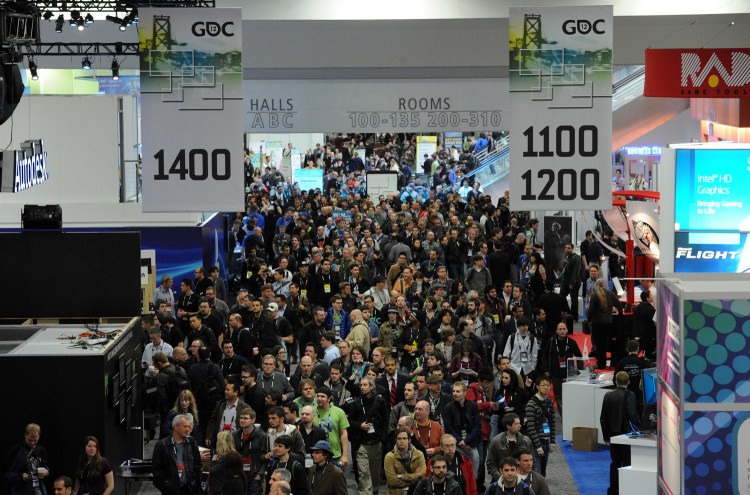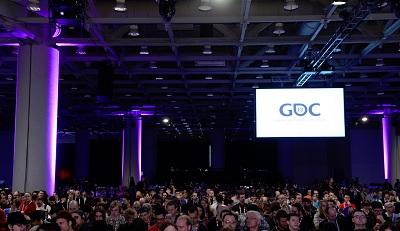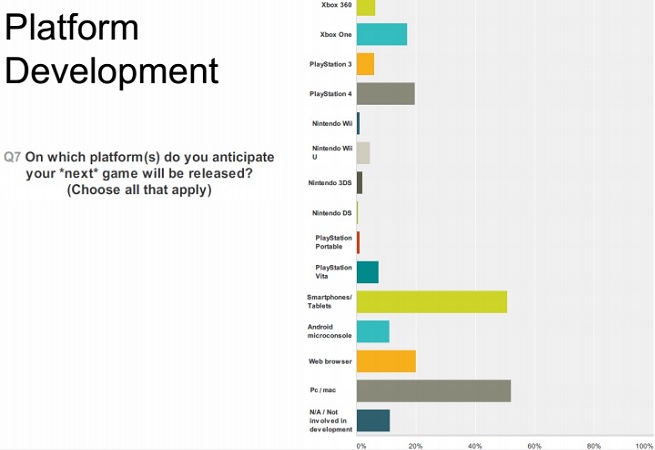Game developers prefer to make games for the PC, smartphones, and Sony’s PlayStation 4 console over Microsoft’s Xbox One, according to a survey of 2,600 game developers by the Game Developers Conference.
The survey of attendees of the upcoming conference sheds light on the attitudes of game developers, who have more choices than ever for game platforms. Game developers are key to the success of any platform, from the iPhone to the new generation of consoles, since great games are primary drivers of platform adoption by consumers in this multibillion dollar worldwide market.
About 20 percent of game developers said that for their next game, they will develop for Sony’s PlayStation, compared to 17 percent for the competing Xbox One and just 4 percent for Nintendo’s Wii U. A year ago, support for the new Wii U was already flagging, and this pretty much doomed it. Nintendo recently acknowledged that the Wii U suffering from weak sales.
The GDC 2014 will take place March 17 to March 21 at the Moscone Convention Center in San Francisco.
The full report of the second annual survey by UBM Tech Game Network (who puts on GDC) covers topics such as platform preference, crowdsourcing, team size, live streaming, and localization.
Sony made some gains in recent months, as right now, only 14 percent of developers are currently making games for the PS4, 12 percent for the Xbox One, and 4 percent for the Wii U.
Simon Carless, the executive vice president of UBM Tech, said in an interview with GamesBeat that Sony has an advantage because it kicked off its efforts with indie game developers — who make an increasingly big part of the audience at the GDC — earlier than Microsoft did.
“The Wii U doesn’t seem to be going anywhere,” he said. “The PS4 has an advantage, but it is not decisive.”
Meanwhile, the barriers to entry in developing games for the PC and the smartphone are lower than ever before, he said. About 51 percent of developers say their next game will be a smartphone/tablet game, while 52 percent say it will be on the PC or Mac. As for current game development, 53 percent are working on PC or Mac titles, and 52 percent are working on tablet/smartphone games.
Developers are overwhelmingly in favor of self-publishing, with 64 percent of them not working with a publisher on their current projects. Only 19 percent are working with a publisher, while 17 percent said they work for a publisher. That self-publishing vs. publishing split is the same as last year and it reflects digital distribution trends on mobile and PC platforms.
And while big crowdfunding projects made headlines in the past year, self-funding is still the most popular model among developers. Fifty-two percent said that at least part of their funding comes from their company’s existing funds, and 46 percent of respondents said they use personal money for their games. That’s up from 2013’s survey, when 37 percent said they used company funds while 35 percent used their own money.
Crowdunding is picking up as a model for game developers, with 11 percent of respondents saying that they used crowdfunding, up from 4 percent the year before. Crowdfunding exceeded venture capital as a source of funding.
“This measures the sheer amount of people, so it’s clear more people will get crowdfunding than VC money, but the dollars from VC money could be in the millions,” Carless said.
Overall, Carless said, “There are more and more people who develop games.”
As for the GDC itself, Carless said that the number of companies taking larger booths is up. He noted that Valve has moved from a meeting room to an actual booth as it prepares to launch Steam Machines with its partners. Oculus VR has also taken out a larger booth to show off its Rift virtual-reality headset, while Sony has its biggest booth ever at GDC. These moves reflect the times as platform owners seek out developers.
As for the talks and issues at the GDC, Carless said that lesbian, gay, bisexual, and transsexual (LGBT) issues will get more attention as will accessibility, women in games, and dealing with fans (nice or not) on the Internet. Anita Sarkeesian will get an award for her advocacy of women’s issues (in spite of numerous online death threats) through the Feminist Frequency video series. The advocacy track will now be available to attendees who buy an Expo pass for the GDC.
“The industry is moving forward on culture issues,” Carless said.
VentureBeat's mission is to be a digital town square for technical decision-makers to gain knowledge about transformative enterprise technology and transact. Learn More




